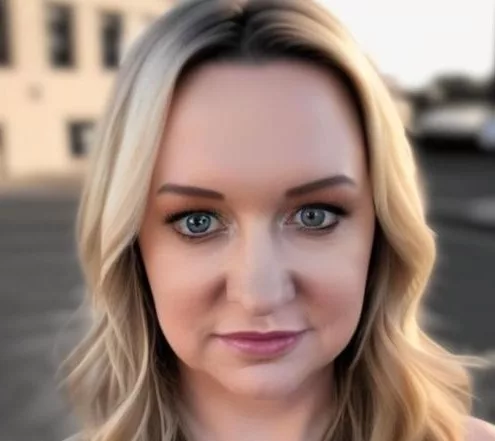Over 40 million people in the United States suffered from addiction (substance use disorder) in 2020.1(pg.28 left column)The same year, only 1.8 million of the 41.1 million who needed help received any treatment.1(pg.37-38, need for substance use treatment, receipt of any substance use treatment) However, the vast majority (37.5 million people) did not receive treatment because they did not think they needed it.1(40 reasons for not receiving…)
The misperception may be due to a lack of understanding addiction and what is required to overcome it. This page will explore the facets of addiction treatment and how it is utilized.
What Is Addiction Treatment?
Effective drug addiction treatment often involves several components that are tailored to a person’s individual needs.2(principles of effective treatment) The course and complexity of treatment are determined by a combination of:2(principles of effective treatment #2, #4, #7, #8)
- The severity of substance use disorder
- The type of substance used
- Any co-existing psychiatric or medical conditions
- Social and environmental factors
- Age, gender, culture, and ethnicity
Treatment plans may differ by level of treatment, type of behavioral therapies, or use of medication.2(principles of effective treatment #8)
Levels of Treatment
Drug addiction treatment is usually classified into different stages of recovery. Treatment at any level can be helpful toward recovery, but starting at an appropriate level of treatment may hasten the path to recovery. Initiation of treatment may begin with:
- Detoxification, which is the process in which the body cleanses itself from a substance.2(types of treatment programs)Medically managed detox is often the first step in treatment and can provide minimization of withdrawal symptoms that may be life-threatening or difficult to overcome on your own.2(principles of effective treatment #10)
- Inpatient treatment, which consists of long- or short-term treatment in a hospital or residential setting for 24 hours a day. As a more intensive treatment, it is usually the best setting for people with severe conditions or specialized treatment needs. 2(long-term residential treatment, short-term residential treatment)
- Outpatient treatment, which are programs that vary in intensity and time commitment but allow a person to live at home while participating in the program. People with strong social support at home or a need to continue working during treatment may start treatment here.2(outpatient treatment programs)
- Community programs or aftercare programs, which provide an essential component for continued recovery and relapse prevention after the completion of an initial treatment program.2(short-term residential treatment) Some people may find support in sober living homes or may utilize self-help groups that can provide support over a lifetime.2(where do 12-step or self-help programs fit…)
Throughout each level of treatment, various behavioral therapies and medications may contribute to the recovery process.2(principles of effective treatment #6, #7)
Behavioral Therapy
Throughout addiction treatment, behavioral therapy is used to heal the psychological aspects of addiction.2(principles of effective treatment #6) Given in both individual and group settings, behavioral therapies may increase engagement in the treatment process, provide incentives to maintain abstinence, modify attitudes, and develop life skills to manage stress and drug use triggers.2(pg.48, behavioral therapies) There are a few common effective therapeutic methods used in addiction treatment:
- Cognitive behavioral therapy (CBT) uses the idea that thoughts govern actions. It works primarily by anticipating problems and developing techniques that help a person cope without substance use.2(cognitive-behavioral therapy)
- Contingency management (CM) principles work by giving patients tangible rewards to reinforce healthy behaviors (such as abstinence). It can assist in developing positive life patterns that continue past rehab.2(contingency management interventions)
- Motivational enhancement therapy (MET), or motivational interviewing (MI), is a form of counseling that can help a person identify internal motivations for change. The principles of MI can be used with other forms of therapy to strengthen motivation and create achievable plans for change.2(motivational enhancement therapy)
- Family behavioral therapy (FBT) involves at least one significant other (family member or life partner) to help a person address substance use problems alongside any co-occurring social problems. It is particularly beneficial with adolescents, but it can be useful in adult treatment as well.2(family behavioral therapy)
The type of substance use disorder and a person’s background largely determine the behavioral therapies applied during treatment. Effective treatment programs often provide initial assessment and individualized treatment plans upon enrollment.
Medication
Medication can be an important aspect of treatment for many throughout any stage of recovery.2(principles of effective treatment #7) For drugs that present with life-threatening withdrawal symptoms, medication can provide safety during the time it takes the body to physically heal.2(principles of effective treatment #10) Beyond the stage of detoxification, medication can improve the likelihood of recovery by:2(principles of effective treatment #7, #10, and pg.12 paragraph 3)
- Reducing cravings
- Improving stabilization and ability to function in society despite a physical dependence
- Treating co-occurring mental health disorders
For example, people recovering from opioid addiction may benefit from methadone.2(pg.42 treatment, no substitution) While they may still have a physical dependence on opioids, the medication does not give them a high and allows them to work, avoid crime and violence associated with obtaining opioids illegally, and reduces other risky behaviors. 2(pg.42 treatment, no substitution) For some, medication may play an important role in multiple stages of recovery and maintenance.
Finding the Right Treatment Program
If you or a loved one are looking for addiction treatment, help is available. Getting an assessment from a local mental health professional can help determine your treatment needs, but many programs also offer assessment upon enrollment. Factors that may influence your choice of drug rehab or alcohol rehab may include:
- Location (local vs. out-of-state, rural vs. urban)
- Program accreditation
- Specific treatment needs
- Insurance acceptance
- Available amenities
- Visiting policies
- Length of treatment
Virtue Recovery Center offers addiction treatment for Arizona, Oregon, and Texas patients. Beginning with detox, they can provide accredited and evidence-based, individualized treatment plans for people with a variety of addiction needs. Call 866-472-3667 today or visit online to find out if your road to recovery could begin with Virtue Recovery Center.
Resources:
- Substance Abuse and Mental Health Services Administration. (2021). Key substance use and mental health indicators in the United States: Results from the 2020 National Survey on Drug Use and Health (HHS Publication No. PEP21-07-01-003, NSDUH Series H-56). Rockville, MD: Center for Behavioral Health Statistics and Quality, Substance Abuse and Mental Health Services Administration.
- NIDA. (2018, January). Principles of drug addiction treatment: a research-based guide (third edition).



























